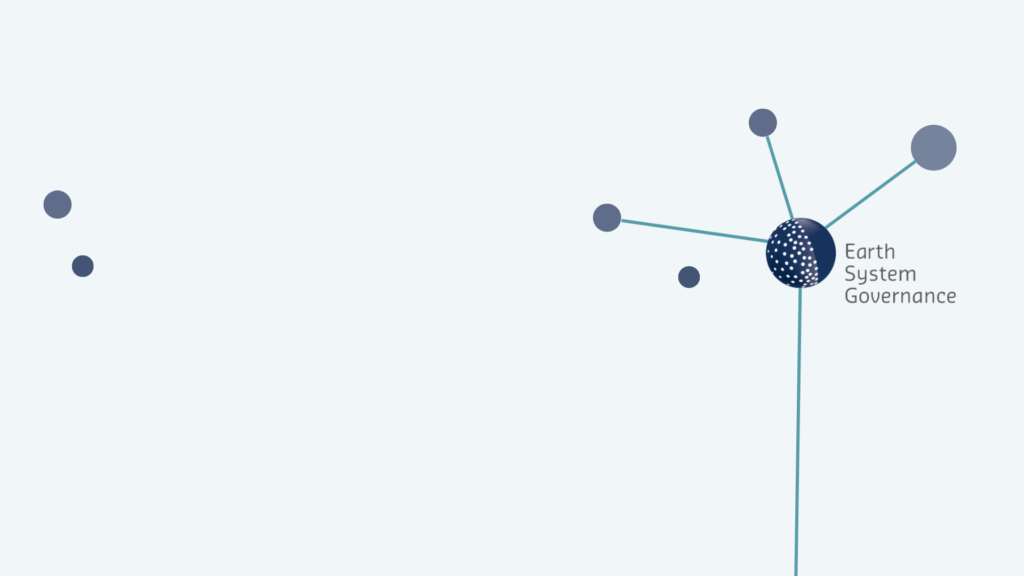Call for Papers for a Special Issue of International Environmental Agreements on International Environmental Justice and the Quest for a Green Global Economy.
Guest editors: Chukwumerije Okereke, Reading University, UK, and Timothy Ehresman, Colorado State University, US
→Download the Call for Papers (pdf)
“Green economy” has of late gathered significant momentum as a guiding principle and/or aspiration for organizing national and global economic activity. The popularity of this concept has recently reached a new level with its being adopted as a key organizing theme for the Rio + 20 Conference in Brazil, June 2012. A clear and dominant definition of “green economy” is yet to emerge but the central ideas appear to include resource efficiency and social equity (UNEP 2011), decoupling economic growth from environmental externalities and the notion of producing “more with less.”
Over the last three decades, scholars interested in the ethical dimensions of global governance have explored the relationship between sustainable development and social/environmental justice both in theory and practice. From the analysis of its local origin in the “political contestation of proposals to site polluting and toxic facilities in predominantly poor and black communities in the US” (Walker and Bulkeley 2006, p.655) to works focusing on its broader and global dimensions, two key insights stand out. The first is that while the concepts of sustainable development and social justice are closely intertwined, the two objectives are not always, in practice, fully compatible (Beckerman 1994; Daly 1995; Dobson 1998; Jacobs 1999; Langhelle 2000; Redclift 2000). The second is that while the notion of sustainable development has engendered a proliferation of justice concerns at both national and international scales, these articulations have not so far proved sufficiently momentous to materially alter prevailing global economic structures and ideas firmly rooted in neoliberal prescriptions for free market capitalism (Benton 1999; Bernstein 2001; Newell 2005; Okereke, 2008; 2011; Okereke and Dooley 2010; Paterson et al. 2003; Sachs 1999). The question then is: what does the increasing emphasis on green economy imply for (social) equity, justice and environmental sustainability?
The above question implies the recognition: (a) of both the positive relationship as well as the abiding tensions between economic development and socio-environmental justice; and (b) that the new quest for a green economy could portend either greater synergy or more tension between justice and economic growth.
Already, a variety of lines are discernible from emergent literature and policy debates. UNEP, for example, contends that the green economy is not a replacement for but rather a means of achieving sustainable development. The body is positive that the Green Economy Initiative “is not generally a drag on growth but a new engine for growth …and a vital strategy for eliminating persistent poverty and increasing social equity” (UNEP 2011, p.2). Others (e.g. Bowen and Frankhauser 2011) suggest that the concept implies “a paradigm shift.” Green economy, they say, calls for “deep, structural and systemic” changes in the economy as opposed to the tinkering at the margins with which extant literature on sustainability is associated (p.1158).
However, many in developed but especially developing countries are not convinced. These are concerned that “green economy” is yet another pretext for green protectionism which they feel will hinder economic development and exacerbate national and global inequality. They prefer that the emphasis continue to be on sustainable development with its explicit conceptual links to poverty eradication, social justice and environmental protection. Others worry that the green growth initiative is nothing but a ruse which will lead to more tax by governments, especially on fossil fuels and other products deemed to be less ecologically benign.
There may well be elements of truth in all of these positions but what is indisputable is that, at least in the short term, there will be winners and losers in transitions to a greener technology and economy (DeSombre 2011, p. 469). Furthermore, the move to a green economy would itself entail material costs, and green products and services may generate their own externalities and risks. For example, “green” jobs in solar photovoltaic (PV) and long-lived lithium barriers manufacturing may involve exposures to harmful materials or generate hazardous wastes which may end up in the backyard of poor and vulnerable communities (Coyle 2011; Mulvaney 2009).
There is the need, therefore, to carefully consider if, where and how policies aimed at encouraging a greener economy can better take account of the full range of justice impacts and prospects such a transition would generate. These are the questions to which this special issue is dedicated. We invite papers that:
A – Interrogate the conceptual and practical relationship between sustainable development, green economy and social-environmental justice. What, if any, is the difference between sustainable development and green economy and how do these concepts implicate questions of justice at national and international scales? What are the lessons, from justice and equity perspectives, that can be learnt from the 30 years effort at the pursuit of sustainable development – both at local and national levels – and how may these lessons be applied in the quest for the transition to a new green economy? What evidence of tensions and questions of justice are already arising from the jurisdictions and sectors that purport to be or are seriously implementing policies to promote a green economy?
B – Are normatively committed to how economic actors, forces and regimes can better serve environmental justice especially in the transition to a green economy. Here it might helpful to think of justice in two dimensions: the demand side and the supply side (Ehresman 2011). Demand side justice would entail emphasis on those by and for whom justice is demanded, and the key actors are those who lack voice in decisions regarding resource access and use. This would also include NGOs, labor unions and other groups that advocate for the vulnerable and disenfranchised. On the supply side, the focus would be on those of whom justice is demanded, and here the relevant actors would tend to be the more powerful groups often attributed with the distribution of environmental burdens, benefits and decisional access, such as states, global financial institutions and multinational corporations. In general, normative papers will focus on the opportunities for achieving greater distributional justice in the transition towards a green economy and how relevant stakeholders in both dimensions should best act to exploit such opportunities.
C – Offer rigorous treatments of the concept of justice with regards to key economic and environmental regimes. Questions include, what ideas underpin current global economic and environmental regimes and what are the prospects for generating “hybrid” conceptions of justice (Parks and Roberts 2010, p. 151) that could galvanize greater North-South accord on key environmental challenges such as climate change? We suggest that while progress has been made, work on social and environmental justice would benefit from movement towards accommodation and not only distinction.
D – Explore the justice implications of market-economic solutions to environmental protection and poverty eradication such as fair trade, carbon markets, offsets and payment for ecosystem services. Others include foreign direct investment; empirical analyses of environmental justice outcomes in trade agreements; the role and acceptability of restraints on trade to discourage products with harmful environmental externalities; the management of global commodity chains in the interest of a greater justice; the interests of groups of consumers and producers, and the ways in which these interests could be recast in the pursuit of more environmentally just outcomes.
E – Consider the prospects and limits of emerging human rights approaches within the climate and environmental justice discourse. Also important are considerations of interspecies justice (justice between the human and non-human) that might be implicated in the quest for a transition to a green economy.
Submission Instructions
The format of the papers must follow International Environmental Agreements guidelines. Please see a recent copy of the journal or the journal website for guidance. Papers should include a 100-150 word abstract followed by 3 to 5 keywords. The paper itself should contain no indications of authorship. A title page containing full author contact information should be sent as a separate document to the coeditors at specialissue@reading.ac.uk. All enquiries about the special issue should be sent to the same email address as above.
Dates and Timetable
The tentative timetable for the special issue is as follows:
August 1, 2012 – Papers submitted electronically to coeditors
September 1, 2012 – Papers sent for blind peer review
December 1, 2012 – Authors invited to resubmit revised papers
February 1, 2013 – Revised papers due (incorporating editors’ and external reviewers’ comments)
April 1, 2013 – Authors notified if paper selected for special issue
June 1, 2013 – Delivery of full set of papers and guest editors’ introductory paper


